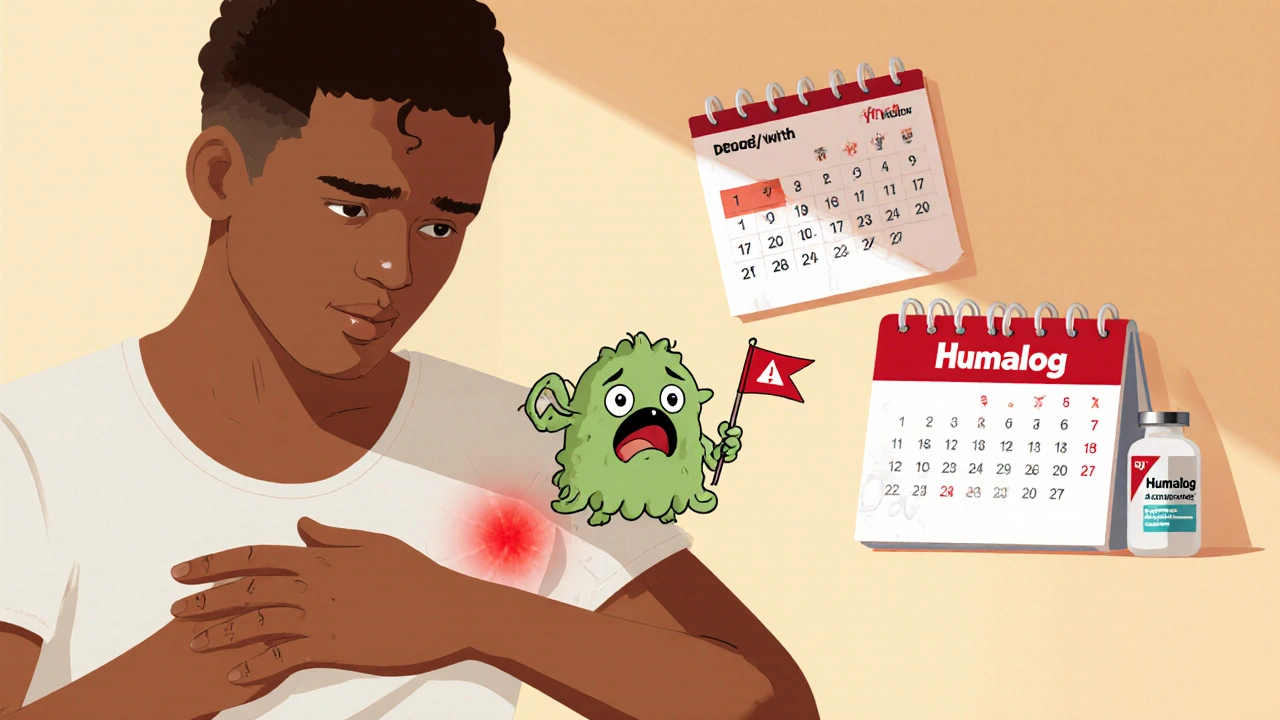Injection Reaction: What It Is, When to Worry, and What Helps
When you get a shot—whether it’s a vaccine, antibiotic, or painkiller—your body sometimes reacts. This is called an injection reaction, a physical response triggered by the substance injected into the body, often involving the immune system. Also known as injection side effect, it can be as simple as a red spot or as serious as trouble breathing. Most are harmless. But some need immediate care.
Not all injection reactions are the same. A local reaction, a common response at the injection site, like swelling, redness, or soreness usually fades in a day or two. But a systemic reaction, a full-body response that can include hives, dizziness, or low blood pressure is more dangerous. The worst kind is anaphylaxis, a rapid, life-threatening allergic reaction that blocks airways and drops blood pressure. It can start in minutes after the shot. If you’ve ever had one before, you’re at higher risk next time.
What causes these reactions? Sometimes it’s the medicine itself—like penicillin or contrast dye. Other times, it’s the preservatives, stabilizers, or even the needle’s material. Even vaccines, which save lives, can trigger reactions in rare cases. People with known allergies, asthma, or a history of severe reactions are more likely to experience them. But anyone can react, even for the first time.
Here’s what matters: knowing the difference between normal and dangerous. Mild itching or a small bump? Probably fine. Swelling that spreads, trouble swallowing, chest tightness, or a racing heartbeat? That’s not normal. Don’t wait. Call 911 or get to an ER right away. Epinephrine auto-injectors can save lives in these cases—if you have one, carry it.
Doctors often ask about past reactions before giving shots. If you’ve ever had a reaction—even if you’re not sure what caused it—tell them. They can choose safer options, pre-medicate you, or watch you for 30 minutes after the injection. Many clinics do this automatically for vaccines, but you should never assume it’s standard.
Some reactions aren’t allergic at all. Nerve irritation from a poorly placed shot can cause sharp pain or numbness. A small infection at the site can mimic an allergic response. Even stress can make you feel like you’re having a reaction when you’re not. That’s why it’s important to get symptoms checked, not just assumed.
Below, you’ll find real patient stories and medical guides that break down what to look for, how to prevent future reactions, and what alternatives exist if you’ve had one before. From vaccine safety to managing side effects from antibiotics, these posts give you the facts you need—no fluff, no fearmongering, just clear advice from people who’ve been there.






